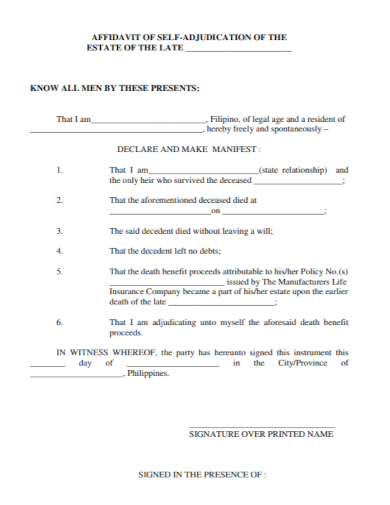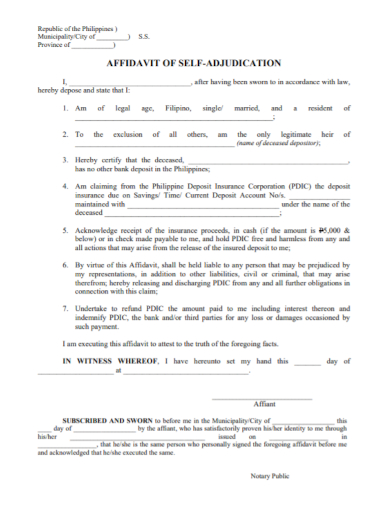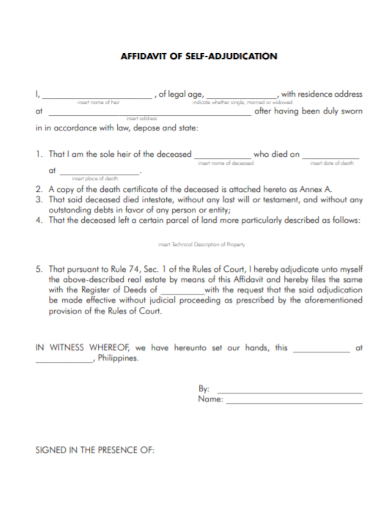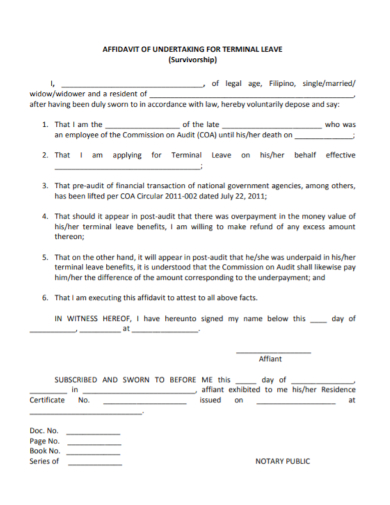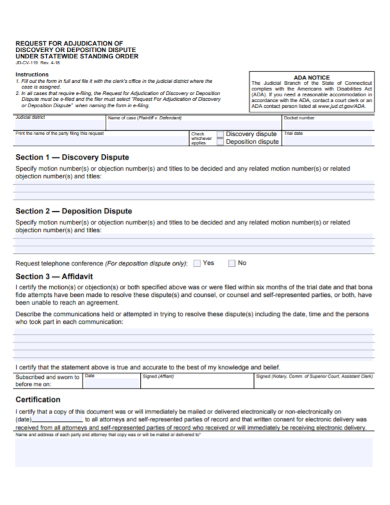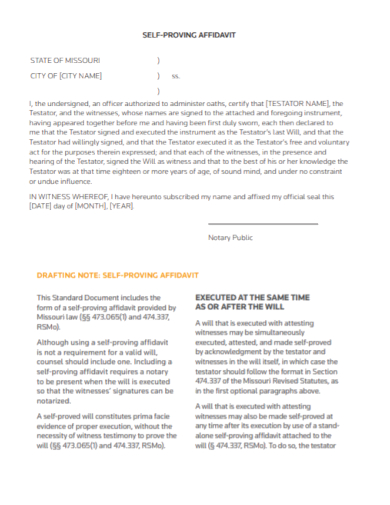It is very common for some people to not marry and build a family, thus leaving themselves without heirs. When they pass away, all of their properties are up for grabs, but the only one who can legally take them is the sole living heir of the decedent. This can be a parent, sibling, nephew, niece, or the closest relative up to the third degree. To claim the inheritance left behind by the decedent, you will need to sign an affidavit statement to verify your identity to the concerned authorities. Read below to find out more about the self-adjudication affidavit.
5+ Affidavit of Self Adjudication Samples
1. Estate Affidavit of Self Adjudication
2. Notary Affidavit of Self Adjudication
3. Lawyer Affidavit of Self Adjudication
4. Affidavit for Terminal Leave Self Adjudication
5. Affidavit of Request for Self Adjudication
6. Affidavit of Self Proving Adjudication
What Is the Affidavit of Self-Adjudication?
The Affidavit of Self-Adjudication is a sworn statement by a living heir that they are the lone inheritor of a deceased’s real estate and a string of their personal property. This document also allows the heir to claim all the inheritance left by the decedent without going through lengthy trials and court proceedings. The affidavit is also used as a backup document during the processing period to get insurance investment claims, withdraw money from the decedent’s bank account, transfer lot titles, and more. This paper is only considered legal when it has a notary seal and the signature of a lawyer.
How to Write an Affidavit of Self-Adjudication?
When it comes to writing legal statements, most people would go to law offices with notarial services to help them create one. However, the Internet now provides different samples of affidavits that users could copy when trying to make their own. If you want to create an affidavit of self-adjudication, you can read further below for tips and advice that you can use when writing one.
1. Details
One important part of the self-adjudication affidavit is the personal details of the affiant. These include their names, current address, and their relationship to the deceased. Stating their identity allows relevant personnel (bankers, lawyers, realtors) to perform a thorough background check if they are indeed the sole heir. Details are vital to litigators to avoid cases of illegal claims made by non-related individuals for the sole purpose of snatching a deceased’s property.
2. List of Properties
This section is where you’ll need to write a list of the many properties that the deceased has left that you intend to claim. These include, but are not limited to, real estate (residential houses, commercial property, farm ranch, or lots), business (small business, corporation), bank accounts, stocks, bonds, personal property (gadgets, clothes), and other valuables.
3. Purpose
It is very important to state what the purpose of the affidavit is in your statement. You can specify whether it is for bank transactions, selling the property, claiming insurance payouts, a requirement for land title transfer, closing a business account, and many others. If you want to use the document to perform other tasks aside from the abovementioned, you can also include it to make your purpose valid.
4. Notary Seal and Signature
The most essential part of the self-adjudication affidavit is the notary lawyer’s signature and seal mark. Without it, your document is deemed invalid and void. To get them, you will need to go to a lawyer’s office and have the document reviewed by a legal consultant or lawyer. When they see any discrepancies in your statements, they will not sign your papers and may even question you about your motives for having such a document created.
Should I bring backup documents when getting my affidavit notarized?
Lawyers are very critical when it comes to documents that involve money and properties, especially if it’s worth a fortune. They do this because they want to know whether the signee of the document is truly the sole heir and to protect themselves at the same time to avoid any legal setbacks in the future.
Are illegitimate sons or daughters considered heirs?
Even if the individual does not carry the surname of the deceased, they are still considered legal heirs according to law. They are also entitled to claim the fortune left by their decedent parent.
Can I use the affidavit as a supporting document for deeds?
If you want to sell a property that belongs to a deceased person, you can use the affidavit as a backup. In fact, you can even use it as a supporting document on other legal documents such as a Deed of Sale, Special Power of Attorney, Transfer of Rights, and so forth.
The Affidavit of Self-Adjudication is a really powerful document as this allows an individual to take over a deceased person’s property without the difficulties and long process of litigation. With the help of your lawyer, create your own affidavit efficiently with our wide selection of trusted templates with professional designs and content.
Related Posts
FREE 12+ Sample Release of Interest Forms
FREE 11+ Child Support Termination Samples
FREE 7+ Sample Divorce Forms
FREE 6+ Sample Stock Certificate
FREE 19+ General Affidavit Samples
FREE 10+ Affidavit of Support Samples
FREE 7+ Sample Blank Affidavit Forms
FREE 6+ Affidavit of Translation Samples
FREE 6+ Sample Sworn Affidavit Forms
FREE 32+ Affidavit Forms
FREE 24+ Sample Affidavit Forms
FREE 15+ Affidavit of Loss Samples
FREE 12+ Sample Affidavit of Support Letter
FREE 12+ Affidavit Samples
FREE 9+ Sample Affidavit

